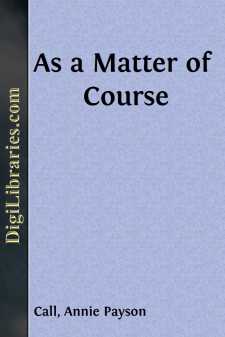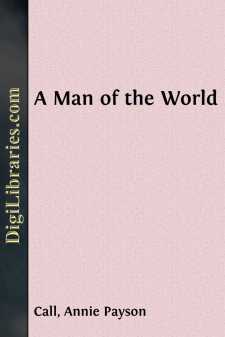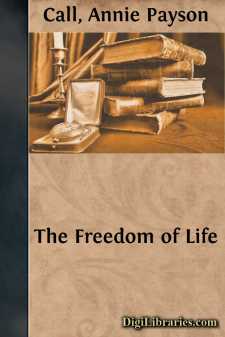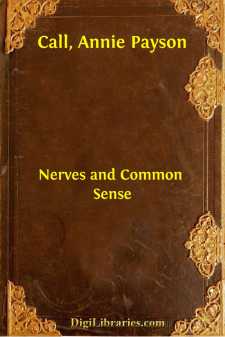Categories
- Antiques & Collectibles 13
- Architecture 36
- Art 48
- Bibles 22
- Biography & Autobiography 813
- Body, Mind & Spirit 141
- Business & Economics 28
- Children's Books 12
- Children's Fiction 9
- Computers 4
- Cooking 94
- Crafts & Hobbies 4
- Drama 346
- Education 46
- Family & Relationships 57
- Fiction 11826
- Games 19
- Gardening 17
- Health & Fitness 34
- History 1377
- House & Home 1
- Humor 147
- Juvenile Fiction 1873
- Juvenile Nonfiction 202
- Language Arts & Disciplines 88
- Law 16
- Literary Collections 686
- Literary Criticism 179
- Mathematics 13
- Medical 41
- Music 40
- Nature 179
- Non-Classifiable 1768
- Performing Arts 7
- Periodicals 1453
- Philosophy 64
- Photography 2
- Poetry 896
- Political Science 203
- Psychology 42
- Reference 154
- Religion 513
- Science 126
- Self-Help 83
- Social Science 81
- Sports & Recreation 34
- Study Aids 3
- Technology & Engineering 59
- Transportation 23
- Travel 463
- True Crime 29
As a Matter of Course
Categories:
Description:
Excerpt
INTRODUCTION.
IN climbing a mountain, if we know the path and take it as a matter of course, we are free to enjoy the beauties of the surrounding country. If in the same journey we set a stone in the way and recognize our ability to step over it, we do so at once, and save ourselves from tripping or from useless waste of time and thought as to how we might best go round it.
There are stones upon stones in every-day life which might be stepped over with perfect ease, but which, curiously enough, are considered from all sides and then tripped upon; and the result is a stubbing of the moral toes, and a consequent irritation of the nervous system. Or, if semi-occasionally one of these stones is stepped over as a matter of course, the danger is that attention is immediately called to the action by admiring friends, or by the person himself, in a way so to tickle the nervous system that it amounts to an irritation, and causes him to trip over the next stone, and finally tumble on his nose. Then, if he is not wise enough to pick himself up and walk on with the renewed ability of stepping over future stones, he remains on his nose far longer than is either necessary or advisable.
These various stones in the way do more towards keeping a nervous system in a chronic state of irritation than is imagined. They are what might perhaps be called the outside elements of life. These once normally faced, cease to exist as impediments, dwindle away, and finally disappear altogether.
Thus we are enabled to get nearer the kernel, and have a growing realization of life itself.
Civilization may give a man new freedom, a freedom beyond any power of description or conception, except to those who achieve it, or it may so bind him body and soul that in moments when he recognizes his nervous contractions he would willingly sell his hope of immortality to be a wild horse or tiger for the rest of his days.
These stones in the way are the result of a perversion of civilization, and the cause of much contraction and unnecessary suffering.
There is the physical stone. If the health of the body were attended to as a matter of course, as its cleanliness is attended to by those of us who are more civilized, how much easier life might be! Indeed, the various trippings on, and endeavors to encircle, this physical stone, raise many phantom stones, and the severity of the fall is just as great when one trips over a stone that is not there. Don Quixote was quite exhausted when he had been fighting the windmills. One recognizes over and over the truth spoken by the little girl who, when reprimanded by her father for being fretful, said: "It isn't me, papa, it's that banana."
There is also the over-serious stone; and this, so far from being stepped over or any effort made to encircle it, is often raised to the undue dignity of a throne, and not rested upon. It seems to produce an inability for any sort of recreation, and a scorn of the necessity or the pleasure of being amused. Every one will admit that recreation is one swing of life's pendulum; and in proportion to the swing in that direction will be the strength of the swing in the other direction, and vice versa....






